
The state of plastics
Many Co-op owners and shoppers have shared their interest in reducing plastic usage in the store. From bioplastics, to compostable plastics to recycling options, the Ashland Food Co-op continues to research what works best as we move towards our goal of being a zero waste store. Here is where we stand.
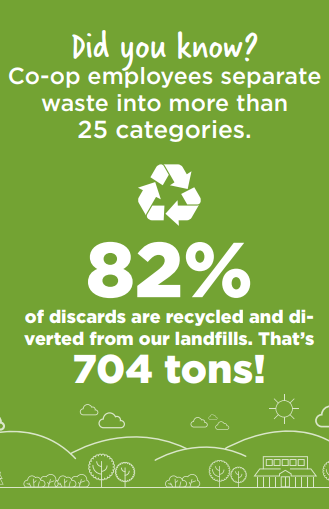
Right now, there is a trade-off in terms of food and plastic waste. Plastic is extraordinarily unique in its ability to preserve food and prevent spoilage and waste. But the trade-off is its very long lifespan.
Reducing plastic waste - by using alternative storage materials, or going package-free when possible - results in more food spoilage and waste, which can sometimes have a bigger ‘carbon footprint’ than plastic use alone.
The best way to summarize: as of March 2019, no perfect solution for plastic alternatives exist.
This isn't meant to make excuses for waste - as you may know, we already divert over 80% of our waste from the landfill. But it is important to know where things stand, and what some of the many decision-making factors are, that go into this debate about containers and plastic. Let’s break it down:
Bioplastics
Bioplastics often come from unsustainable sources - for example, monocropped GMO corn that could be used to feed people, or is grown on the other side of the country and requires a large carbon input to deliver.
As the name implies, bioplastics often have lifespans as long as petroleum plastics - they’re still plastic! The “end of life” assessment for bioplastics is not much better than petroleum plastics. For example, a single-use plastic fork made from GMO corn will still end up in the landfill.
Though there are recyclable and compostable bioplastics, they often require specialized machinery at waste disposal sites to be broken down. Our region does not currently have that infrastructure, and the additional carbon footprint to ship these materials elsewhere can quickly outweigh the ‘bio’ benefits.
The Co-op continues to explore options in this area: more readily compostable bioplastic bags are hitting the market which we will continue to test.
Alternatives to plastic
AFC has brought in cardboard packaging for some produce, like cherry tomatoes and strawberries. And yes, they are completely recyclable!
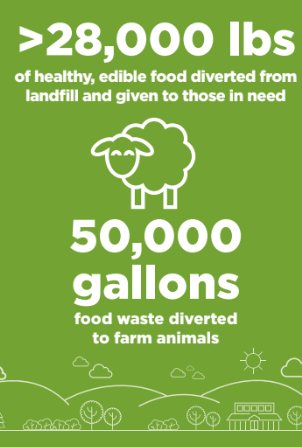
However, it can be difficult for customers to visually connect with the product - can you tell how juicy and ripe those strawberries are through the cardboard? Without that visual connection, a shopper may be hesitant to buy the product, inadvertently leading to more food waste (because the product stays on the shelf longer).
Cardboard also leads to more spoilage because of the lack of light and its ability to carry moisture (leading to molding).
Is generating more food waste an acceptable trade-off to having recyclable and compostable packaging? This is another instance where analyzing production inputs and requirements, instead of just ‘end-of-life’ issues for packaging, gives a better idea of the sustainability of a packaging type.
Plastics recycling
Many plastics are no longer being accepted by local waste management services. Generally, white, rigid plastics (example: yogurt containers) are still being recycled; clear, non-rigid plastics (soda bottles, salsa containers) are not. So buy smart!
Clamshells are a common area of concern. The Co-op is very lucky to be able to recycle plastic clamshells from products that were purchased at AFC. You can bring those clamshells back into the store for recycling. Even better, this recycling is more carbon neutral because the clamshells hitch a ride back to Eugene on existing truck routes (rather than a one-off transit run).
If you're purchasing greens, you can also bring your own container to fill from the bulk spinach and baby greens bins. Alternatively, OrganicGirl salad clamshells are made of 100% recycled plastic.
Our commitment
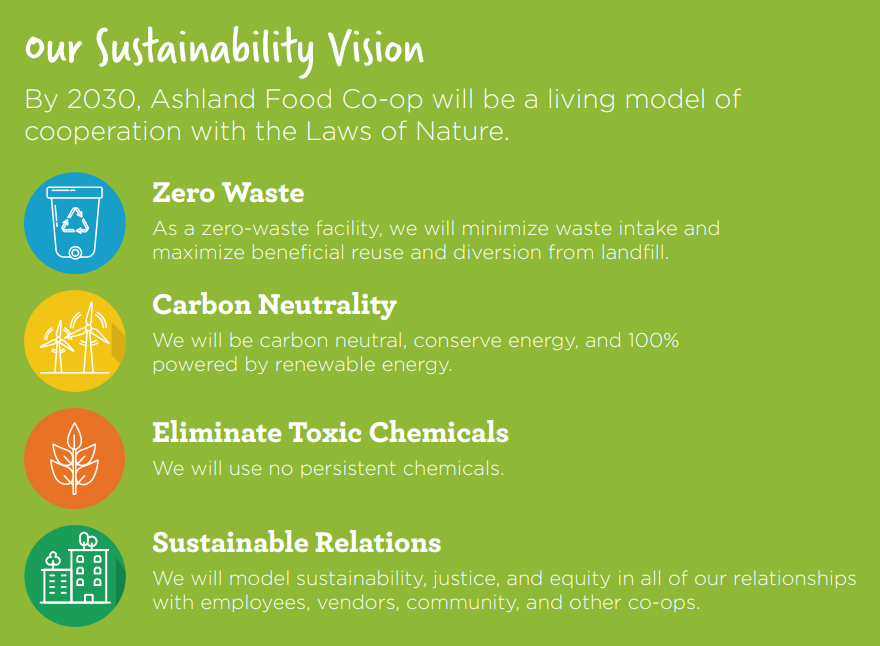
It’s easy to see that with the options available right now, there’s always a trade-off. In our own store and through the National Co-op Grocers network, we continue to look for a solution that is not petroleum-based, non-GMO, and that can be recycled or composted fully. When that solution arrives, we will be ready!
Right now, you should aim to reduce your overall plastic consumption when making purchasing decisions; choose reusable packaging when you do have to purchase plastic (clear salsa packages make great storage for leftovers); and choose recyclable plastic (white plastic and clamshells) if you think you’ll only get one use out of the packaging.
For some additional reading on the topic of plastics and packaging, check out this report put together by the Oregon Department of Environmental Quality.
More Co-op News
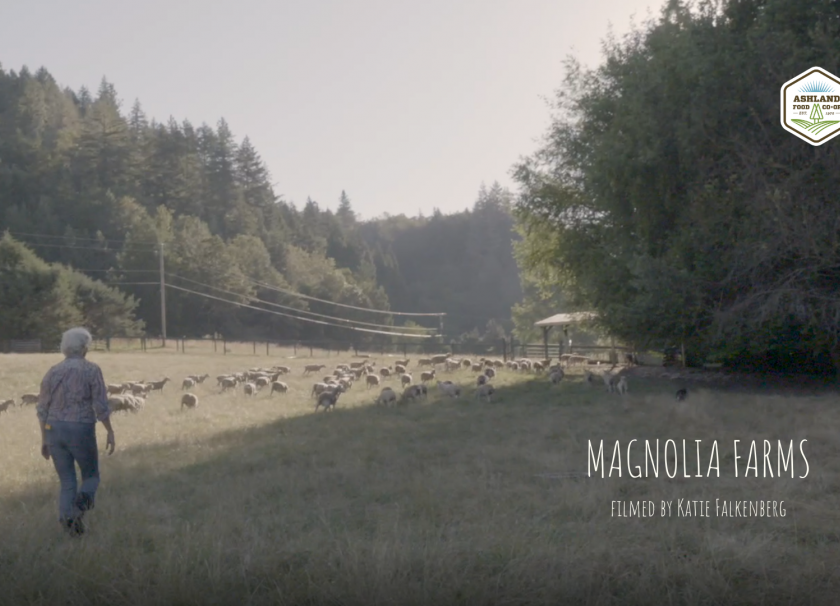
A Visit with Magnolia Farms
Visit Magnolia Farms and learn more about owner Elissa Thau, who the Ashland Food Co-op is so honored to partner with for more than twenty years.
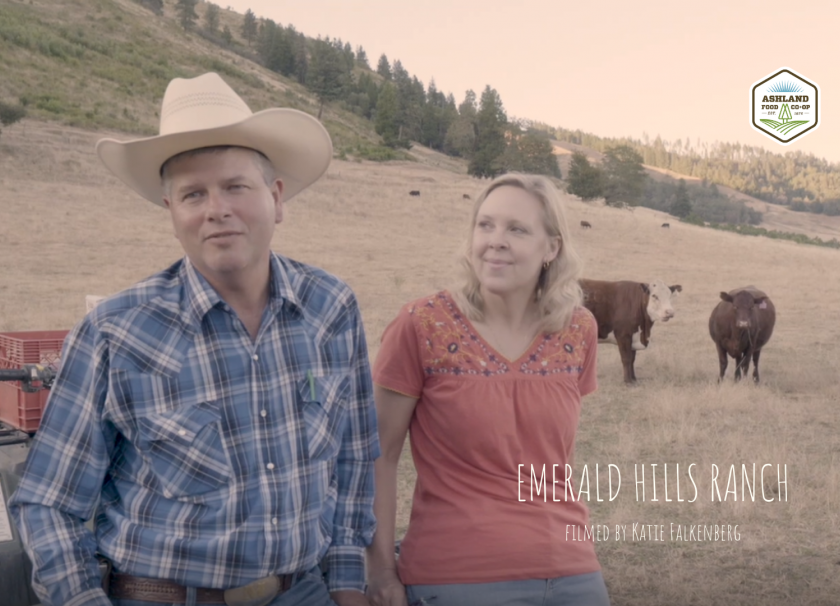
A Visit with Emerald Hills
Visit the Emerald Hills Ranch and learn more about this fourth generation ranching family that the Ashland Food Co-op is so proud to partner with for more than twenty years.
A Conversation with Katie Falkenberg, Photographer and Filmmaker
Katie Falkenberg's photography and filmmaking has taken her all over the world, and lucky for us - she's been calling the Rogue Valley home for a couple years now. Exquisitely and harmoniously capturing the world around her, she is documenting not only through the lens but also through her peaceful and loving spirit. Katie reached out to us in hopes of collaborating after falling in love with the co-op soon after moving here.
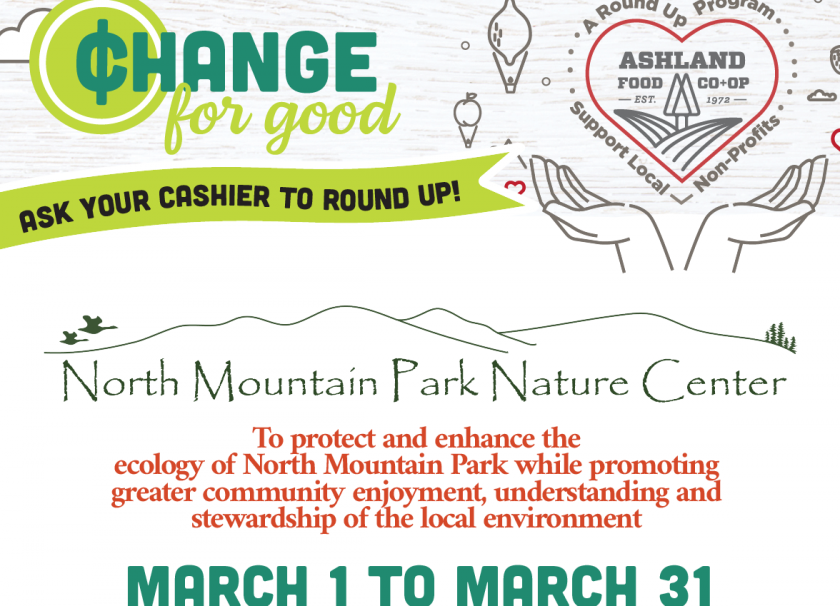
March Change for Good Recipient: North Mountain Park Nature Center
March's Change for Good Recipient is
North Mountain Park Nature Center,
a division of Ashland Parks and Recreation, that encompasses demonstration gardens, a nature playground, and approximately 14 acres of Natural Area that is managed for wildlife preservation and public education.
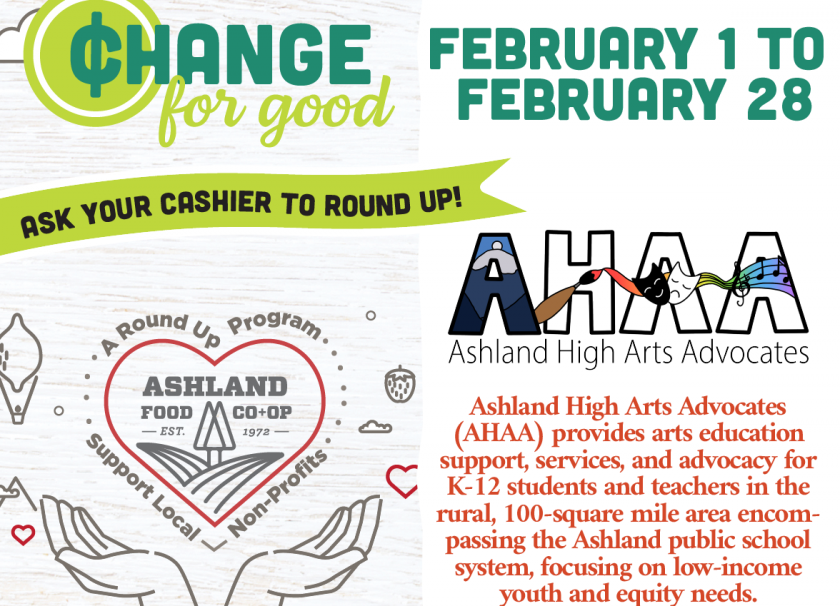
February Change for Good Recipient: Ashland High Arts Advocates
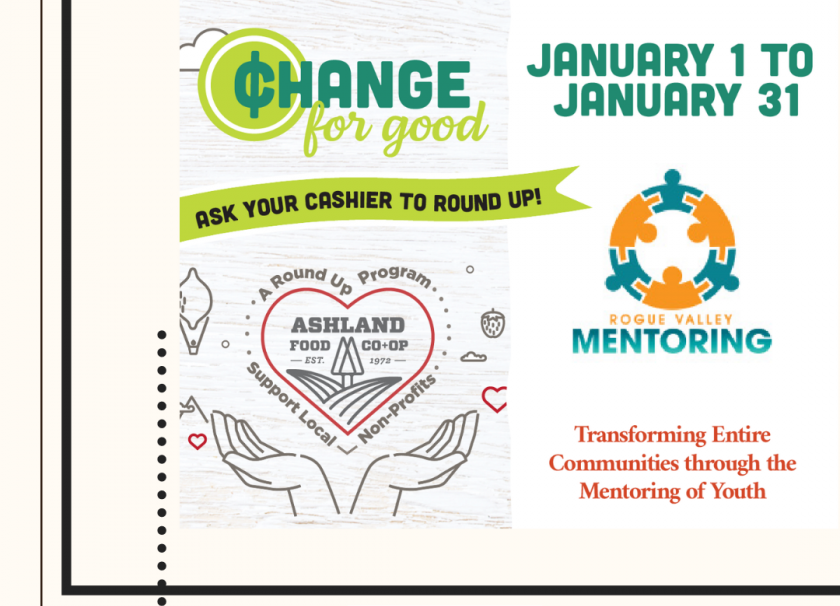
January Change for Good Recipient: Rogue Valley Mentoring
Since 2005, Rogue Valley Mentoring (formerly the Rose Circle Mentoring Network) has trained over 500 adults who have mentored over 2,000 youth in our valley; letting young people know that they are not alone. A caring and compassionate ear shows them that they matter, and they they are experts of their own experience.
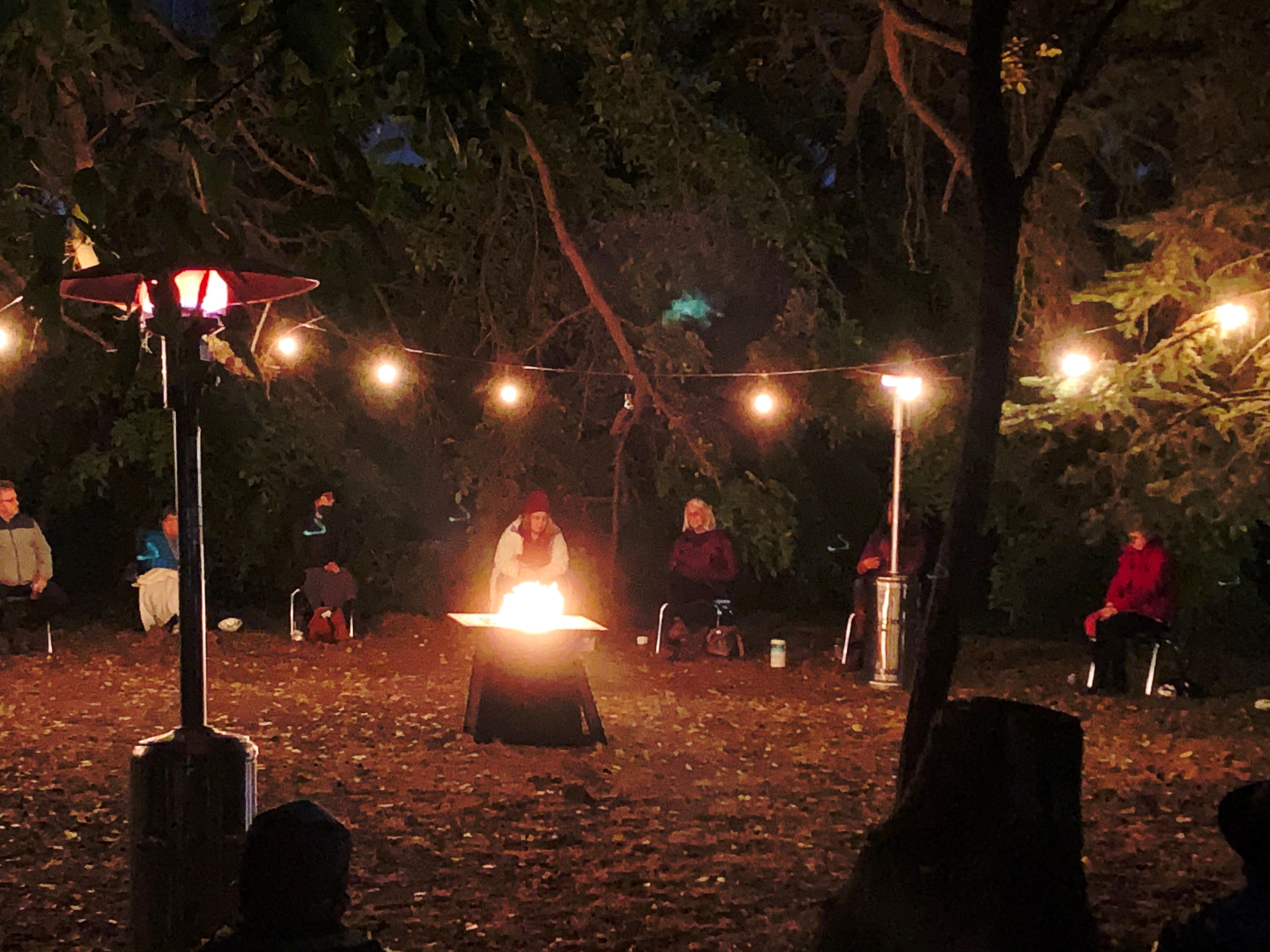
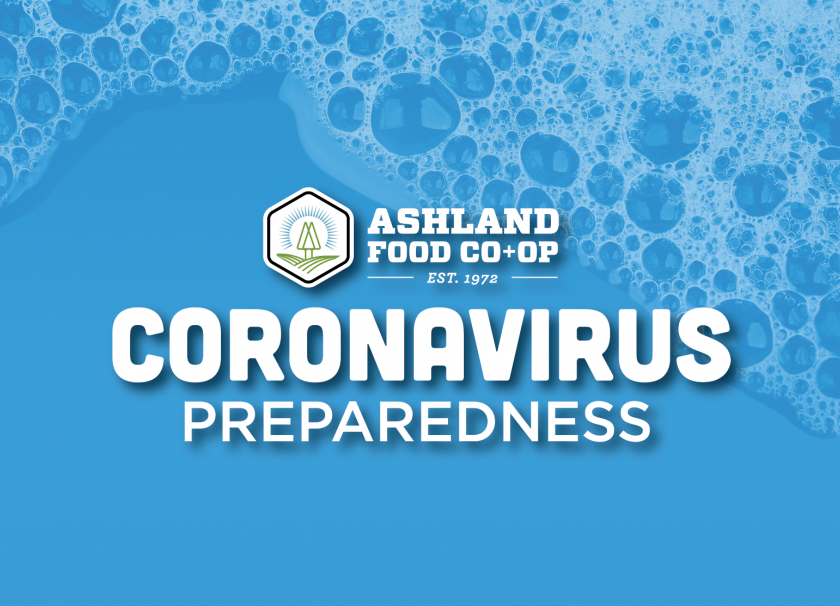
Coronavirus Preparedness at the Co-op
Update as of March 15th, 2022: Oregon Health Authority no longer requires face coverings to be worn in all public indoor settings.

Shopping Safely & Efficiently
As coronavirus cases increase in Jackson County, the Co-op is taking extra precautions to protect shoppers and employees.
To ensure social distancing in the store, the number of persons allowed in the store at once has been reduced to 50% capacity. Understandably, this may lead to a short wait outside of the store, but please be assured the line moves quickly.
In order to keep the wait as short as possible, here are a few steps you can take to help out:

10 Ways to Shine Your Light in Dark Times
By Allan Weisbard L.C.S.W.
Since 1963, autumn has been a difficult time for me. Two months shy of my 13th birthday I lost my younger brother to cancer, then shortly afterwards, President Kennedy was assassinated.

Masks Required for All In-Store Shoppers
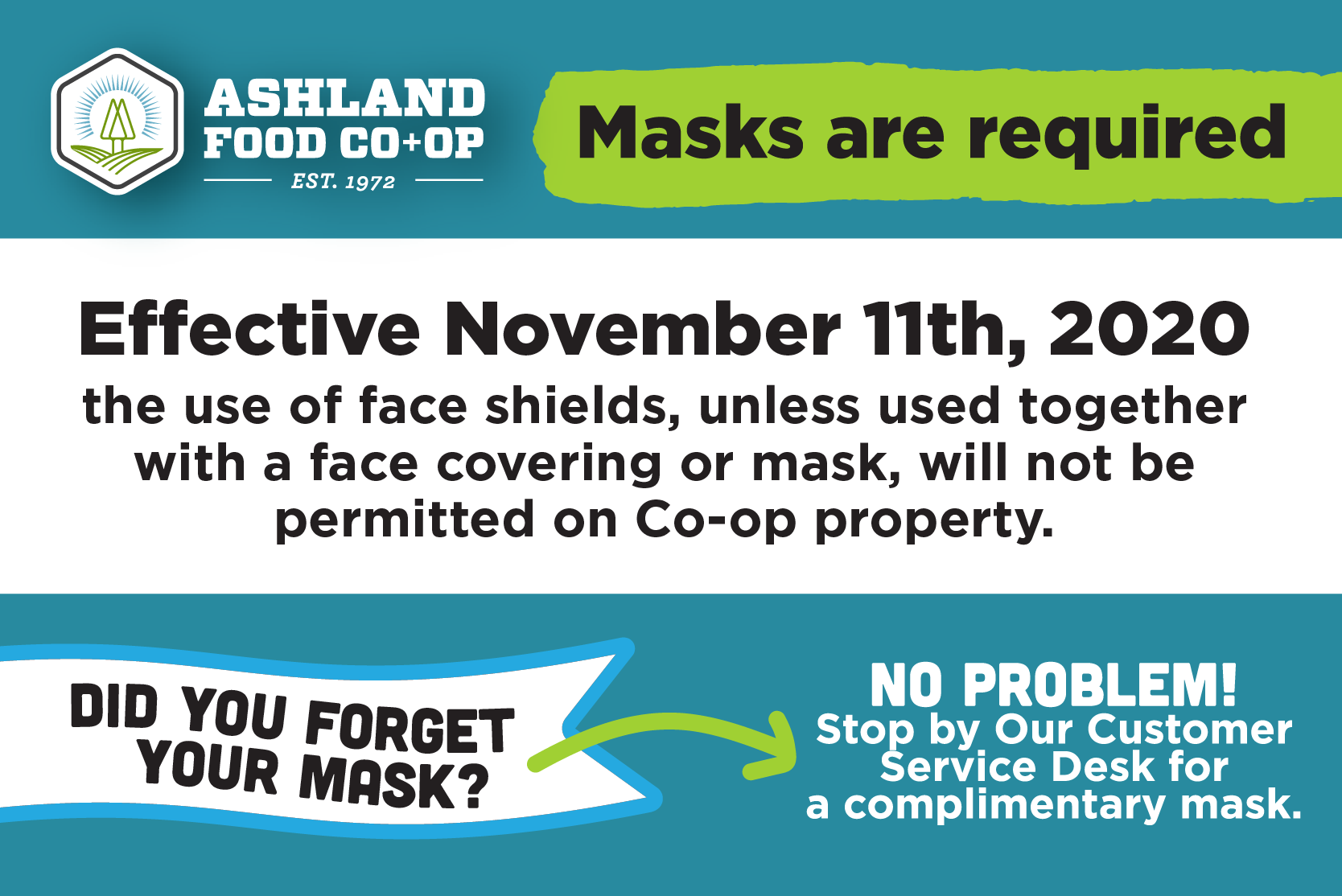
To protect the health of Co-op staff and shoppers, all shoppers and other visitors on Ashland Food Co-op property must wear face coverings over mouth and nose except when dining in an approved area. As of November 11, 2020, face shields will not be permitted unless worn with a mask.
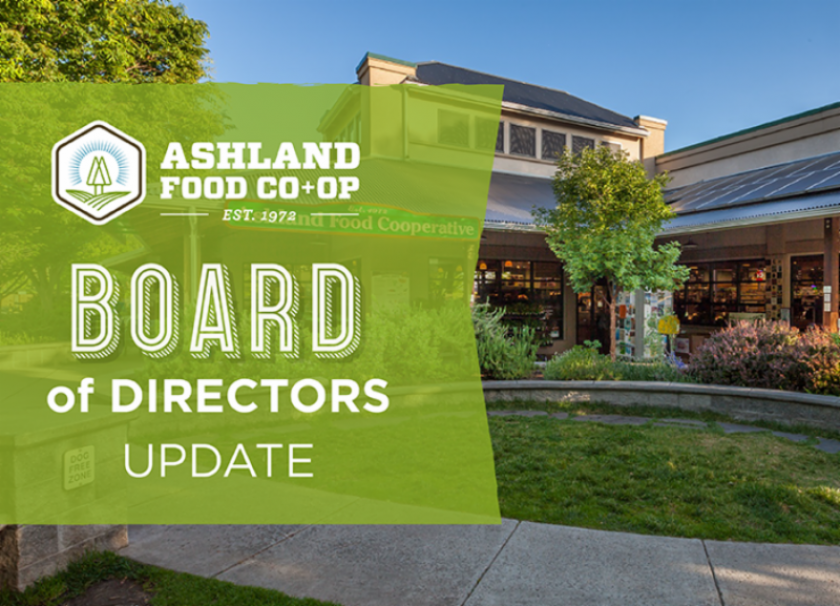
From the Board: Co-ops Look in the Mirror
By Annie Hoy, Board Secretary and Chair of Owner Engagement Committee
Food Co-ops around the nation proudly display signage saying EVERYONE WELCOME. Or they use the slogan, “Anyone can shop. Anyone can join.” But are food co-ops, and other cooperative businesses, walking the walk?

November/December GM Update: Overcoming Challenges
It’s probably already cliche to say “it’s been one heck of a year.” There have been challenges a-plenty for all of us, whether we’re working or shopping at the Co-op - but I’m so proud of how all of us have persevered.
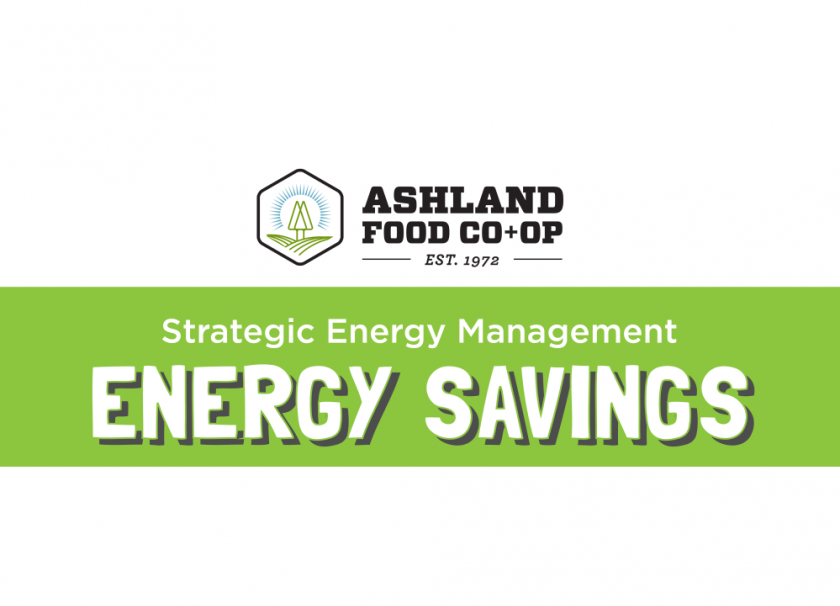
End of year wrap-up on Strategic Energy Management at the Co-op
Hi there. I hope this finds you well. It’s me, Nina Friedman, Strategic Energy Management (SEM) intern for the Ashland Food Co-op. The global and local crises have only devolved into further chaos since we last spoke. As we sit with the reality of coworkers, neighbors, and friends who’ve lost their homes and businesses to the recent fires, and thousands more across the nation losing their loved ones to COVID-19, I imagine many are feeling frozen and powerless to help those that are suffering.
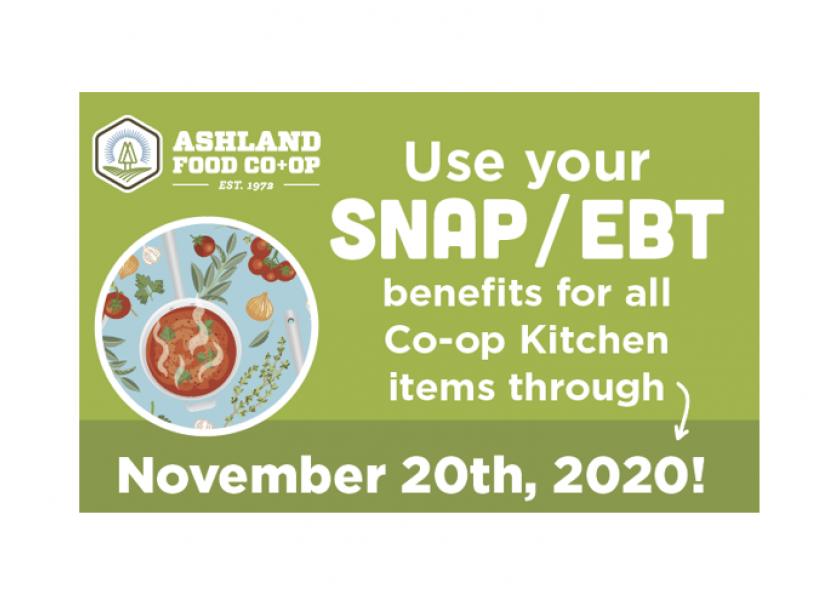
SNAP in the Co-op Kitchen and Thanksgiving
Use your SNAP EBT benefits for all Co-op Kitchen items through November 20th, 2020!
Recognizing the difficulties in food preparation for families who lost their homes in the local wildfires, the State of Oregon has expanded SNAP benefits to be used for hot foods, like made-to-order and hot bar meals from the Co-op Kitchen, through November 20.
And starting on November 16, you can get an early taste of Thanksgiving as the Co-op Kitchen hot bar rolls out the full Thanksgiving spread.
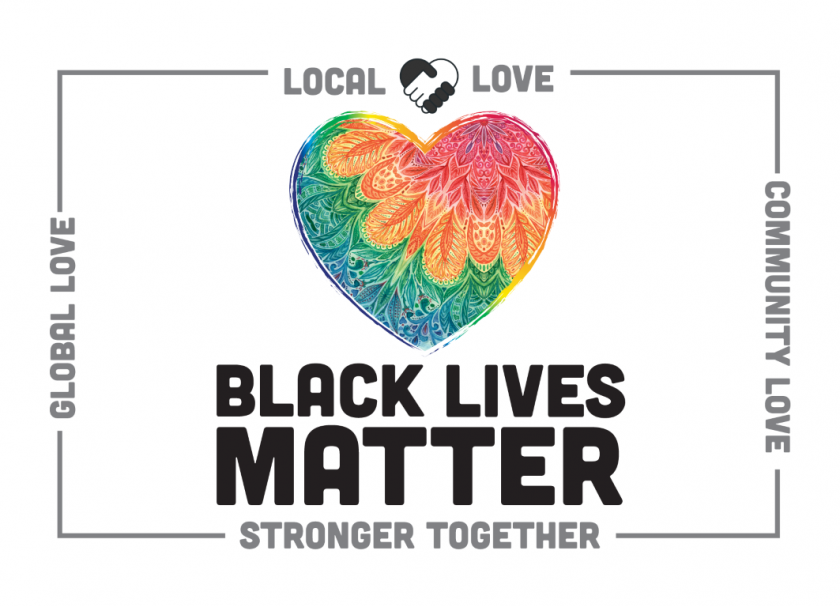
Black Lives Matter
We acknowledge that the Ashland Food Co-op has not had a culture where all employees and community members felt safe sharing their experiences of discrimination in our store. We apologize for this. We are on a learning journey. We have reached out for help, and are listening to our Black, Indigenous and People of Color (BIPOC) employees and owners who want to be part of the positive change we seek.
* * * * *
